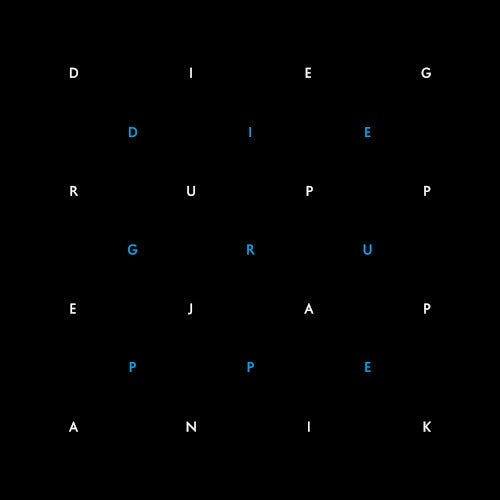Deluxe LP ist limitiert auf 1000 Exemplare, blaues Vinyl, Klappcover mit Heißfolienprägung.
Terrible times indeed. Discerning pop music fans will therefore be more than pleased that intellectual rock darlings Ja, Panik are back after a seven-year hiatus. This comes as somewhat of a surprise, given that in their 2016 band autobiography Futur II—published to mark their tenth anniversary—the Berlin-based quartet of Andreas Spechtl (vocals, guitar), Stefan Pabst (bass), Sebastian Janata (drums) and Laura Landergott (keyboards & guitar), pretty much announced their permanent di …
Read More
Deluxe LP ist limitiert auf 1000 Exemplare, blaues Vinyl, Klappcover mit Heißfolienprägung.
Terrible times indeed. Discerning pop music fans will therefore be more than pleased that intellectual rock darlings Ja, Panik are back after a seven-year hiatus. This comes as somewhat of a surprise, given that in their 2016 band autobiography Futur II—published to mark their tenth anniversary—the Berlin-based quartet of Andreas Spechtl (vocals, guitar), Stefan Pabst (bass), Sebastian Janata (drums) and Laura Landergott (keyboards & guitar), pretty much announced their permanent dissolution.
The Austrian band first emerged on the German music scene in 2007 with The Taste and the Money, a whirlwind of an indie rock album featuring gripping songs with incisive lyrics in the Ja, Panik trademark style of mixing both English and German. German music bible Spex magazine declared The Taste and the Money the most important German-language album in years. When their masterpiece DMD KIU LIDT was released in 2011, Ja, Panik broke out beyond the music magazines, with national papers raving over the album's virtuosic fusion of pop and politics. 2014's Libertatia, a concept album inspired by the fictional pirate colony immortalised in a 17th-century pamphlet by Daniel Defoe, garnered similar praise.
Never ones to repeat themselves, the eponymously titled "Die Gruppe" demonstrates that the four band members have been busy honing their craft, producing a sixth album that reveals a new level of artistic maturity. The eleven songs on the LP were recorded during the summer pandemic lockdown of 2020, which the band spent in their home region of Burgenland. The curfew issued by the Austrian government meant that band had to hole up in their makeshift studio, working on the material that Andreas Spechtl, singer and songwriter, had demoed earlier in the year while staying in Tunisia.
The pandemic restrictions also meant that "Die Gruppe" was their first work to be self-produced. Explains Spechtl: "We recorded, produced and mixed the records ourselves. It was the best decision we ever made, and we'll never do it any other way again. The songs were all written before the pandemic, but this new situation we found ourselves in had a big influence on the production. Some of the songs proved prophetic in quite an uncanny fashion..."
Take Spacemen 3-tinged tune "The Cure" for an example: Spechtl's German-English plea to his doctor for help now sounds like it was tailor-made for these challenging times (though, as in the opening track "Enter.Exit," the lyrics remain ambiguous on purpose as to exactly which ailment they refer). Unambiguous, however, is the ghost of the late cultural critic and chief hauntologist Mark Fisher, who looms large over "Die Gruppe". Spechtl alludes to Fisher's writings in "Apocalypse or Revolution" when singing "it is the past that will return / from the future this time," while explicitly citing the title of Fisher's last book The Weird and the Eerie in "1998." Other literary allusions are more esoteric and opaque, such as hidden references to Medea Material by East German playwright Heiner Müller, or to the notion of the "critter" from cyborg feminist Donna Haraway's recent book Staying with the Trouble in the album's sort-of-title song, "Die Gruppe."
But Spechtl's very wide reading never gets in the way of the music. As his track record proves, he can churn out three great pop songs in a week, if he pleases. "On Livestream" is a case in point: a quintessential Ja, Panik tune, this infectious pop song about how our communication has now shifted to video conferencing boasts a catchy chorus and a euphoric choral end section, incorporating a plethora of lush production effects.
The tracks featuring exclusively English lyrics warrant special attention. "1998" is an atmospheric ballad with Spechtl in semi-autobiographical mode, reminiscing about "a country boy / afraid to go online / for the first time...there was a crack in the world / and I tried to slip in / I was looking for you / but I found/ all sorts of things / from multitude to solitude." A beguiling song about longing and disappointment, "1998" starts out as a gentle guitar ballad but concludes with electronic noise effects. This transformation mirrors our failed hopes regarding the emancipative potential of the internet which, in the words of Spechtl's song, has turned into a "world-wide wall." Other tracks like "What if" and "The Zing of Silence" show off the experimental, electronic side of Ja, Panik and act as interludes between the songs proper.
"Die Gruppe" is not merely a collection of tunes but a finely-crafted album that draws its captivating qualities from the unfolding dramaturgy of the songs, the interplay between the German and English language, and the effort to deviate from well-trodden paths in each and every song in terms of both writing and production.
Paying tribute to Spechtl's 2019 solo album, Strategies, Radio 3 Late Junction's Nick Luscombe opined, "The album offers a survival strategy for the new world in the form of motoric beats, catchy hooks and cutting lyrics." Similar plaudits can be expected for "Die Gruppe": eschewing an album title proper, Ja, Panik lets their music speak for itself. Their latest group effort makes for yet another exceptional album, full of compelling songs made for our sorry times, and most certainly for an album that indeed deserves a wider audience beyond Germany.
Read Less



